I Dig Sports

NEW YORK -- Major League Baseball removed references to "diversity" from its MLB careers home page following an executive order by President Donald Trump that could lead to possible federal action against organizations using DEI programs in violation of his administration's interpretation of civil rights law.
"Our values on diversity remain unchanged," MLB said in a statement Friday. "We are in the process of evaluating our programs for any modifications to eligibility criteria that are needed to ensure our programs are compliant with federal law as they continue forward."
The removal of the references was first reported by Cup of Coffee.
Baseball commissioner Rob Manfred, who launched a diversity pipeline program in 2016, said following an owners meeting in Palm Beach, Florida, last month that MLB was evaluating the interpretation of law coming from the federal government.
"Our values, particularly our values on diversity, remain unchanged, but another value that is pretty important to us is we always try to comply with what the law is," he said. "There seems to be an evolution going on here. We're following that very carefully. Obviously, when things get a little more settled, we'll examine each of our programs and make sure that while the values remain the same that we're also consistent with what the law requires."
Will the White Sox lose 120 games again? Could someone else lose more? What to expect from MLB's worst team

Last time we saw the Chicago White Sox, they were putting the finishing touches on an MLB record 121-loss 2024 season. Since then, they have traded away their best player -- ace Garrett Crochet -- in a winter move and added, well, not a whole lot in free agency.
Does that mean Chicago could be just as bad in 2025? Which veterans could be traded away this season? And could anyone else in the majors finish with a worse record than the White Sox? ESPN MLB experts Buster Olney, Jesse Rogers and David Schoenfield weigh in.
How does the White Sox roster entering Opening Day compare to last season?
Olney: The first chapter of the rebuild is behind them, and the White Sox have parted ways with a bunch of veterans they had in 2024 -- from the trades of veterans like Eloy Jimenez, Michael Kopech and Crochet to the departure of free agents like Yoan Moncada. Naturally, then, their roster is largely filled with young and unproven players. The White Sox will be open to more deals for the experienced players they still have, like Luis Robert Jr., because those guys probably won't be around when the team becomes competitively relevant again. The White Sox hit rock bottom last year, and now they start what is likely to be a long, slow climb.
Rogers: Younger and less experienced -- especially on the mound, where 25 year-old Sean Burke got the Opening Day nod. Add Jonathan Cannon (24), Davis Martin (113 career IP) and the injured Drew Thorpe to the mix, and the Sox won't be starting anyone with any name recognition outside of veteran Martin Perez.
The lineup can't be worse to start the season than last year's edition -- but it could be just as bad, as it features only three players with any real experience: Andrew Vaughn, Andrew Benintendi and Robert. Top prospect, shortstop Colson Montgomery, was just sent down to the minors so his debut will be delayed. But newcomer Mike Tauchman will provide professional at-bats and perhaps a full season of Miguel Vargas will pay off. The roster is different but remains to be seen if it's better in any way.
Schoenfield: The 2024 team had more known names -- Robert, Moncada, Jimenez, Benintendi, Paul DeJong and Martin Maldonado were all in the Opening Day starting lineup, for example. But that group was collectively awful, combining for negative WAR.
What the 2024 White Sox did have, which we didn't know on Opening Day, was two excellent starting pitchers in Erick Fedde and Crochet, although Fedde was dealt to the Cardinals at the trade deadline. And now Crochet is gone as well. So, on paper, you could argue the 2025 White Sox look just as bad as last season.
How many more -- or fewer -- games will the White Sox win this season than they did last season?
Olney: You would think that the trade of one of the most dominant starting pitchers in the league would impact their bottom line of wins and losses, but it wasn't exactly like they tore it up on the days that he pitched -- they went 9-23 in the 32 games Crochet started last year. The other four teams in the division are all improved and competing for playoff spots, which won't help the White Sox, but you'd think that the new season will help the day-to-day culture. Last year, there was so much negativity around the team because of the early losing, questions about when manager Pedro Grifol might lose his job and the impending trades. That's behind them now, and there is almost always a refresh under a new skipper -- Will Venable, in this case. So I think they'll win more games, but not many. I'd put them at 45-117.
Rogers: I think the Sox will get off to a bad start. New manager Will Venable doesn't have much to work with in the bullpen while Benintendi has been slowed by a hand injury. But unlike last year when they tanked coming out of All-Star break, expect the White Sox to win more games in the second half. Montgomery's debut will be a jolt, as will the potential of seeing top picks Hagen Smith and Noah Schultz on the mound for Chicago at some point. Even the current rotation will be better later in the season. The team will just look better as the season goes along. The result will be a 54-108 record.
David Schoenfield: Only the 1962-63 Mets have lost 110 games in consecutive seasons, so it's really hard to be this awful two seasons in a row (although the Orioles lost 115 and then 108 in 2018-19). The White Sox will improve: Let's go with 56-106.
Who will be the best player on their team this season?
Olney: No doubt about it: Robert. Other teams see him as a player with value when he's healthy. Maybe the most important question for Chicago's big-league team this year will be how many games Robert plays leading up to the July 31 trade deadline, because the more he plays, the more he'll produce -- and the higher his value is. There will be teams interested in trading for him, but what they'll be willing to pay will be directly tied to whether he stays on the field and if he hits.
Rogers: If it's not Robert then he's injured again, not as good as we thought or wearing a different uniform after a trade. He's easily their best talent. Outside of that, don't put it past Tauchman to be their most consistent hitter. Benintendi and Vaughn have a lot to prove.
The bottom line is the White Sox are a year away from their best player coming from their talented prospect base. Perhaps then it will be Montgomery or one of those stud pitchers. For now, it's Robert -- though with some doubts about his ability to stay healthy.
Schoenfield: I suppose Robert is the easy answer, given what he did in 2023 (38 home runs, 5.3 WAR). But he's injury-prone, was terrible last season and might be traded. But there's also no clear No. 2 choice. If Tauchman is any good, he'll be traded. Same with Perez. Maybe one of the starting pitchers is good or Schultz comes up and dominates for 15 starts or Chase Meidroth posts a .400 OBP or something. But probably not. So Robert.
Who will be the biggest name traded by the White Sox this season?
Olney: They've got a couple of other interesting players on their roster capable of rebounding, like Benintendi, but if Robert plays well, he could be this year's Crochet, with multiple teams angling to make a deal for him.
Rogers: Definitely Robert. He's gone in July if he puts up any numbers in the first half.
Schoenfield: Robert is the easy answer, but there's a scenario where he's good, all the prospects take off and the White Sox start thinking they could be competitive as soon as 2026 and keep Robert through 2027. So I'll go with Tauchman.
Will they be the worst team in baseball again -- and if not, who will pass them for the honor?
Olney: No doubt, they will be the worst. The Miami Marlins are a year ahead of Chicago in the rebuild process, and while the Marlins could win a third of their games, that might be a stretch for the White Sox.
Rogers: It's close between the White Sox and Marlins, but Miami can pitch a little. I'll say the White Sox finish with the worst record -- but still improve by about 15 games!
Schoenfield: I think so. The Marlins might give them a run, especially since they'll probably trade Sandy Alcantara, but Miami should have a decent enough bullpen to prevent the worst record.

MECHANICSBURG, Pa. Cold temperatures and biting winds have forced Williams Grove Speedway officials to postpone the season opener slated for Friday night.
Williams Grove Speedway will make another attempt at getting the 2025 season opener in the books next Friday night, March 28 at 7:30 pm.
Presented by Hoosier, the season lidlifter will now feature the Lawrence Chevrolet 410 sprint cars and the winged super sportsman.
The 410 sprint cars will compete for $5,500 to win in a 25-lap main event.

FIA World Rally Championship leader Elfyn Evans led Safari Rally Kenya after a dramatic and attritional Friday leg, as frontrunner Ott Tänak fell foul of mechanical problems in the searing African heat.
In true Safari fashion, few crews emerged unscathed from the rallys first full day, which featured eight brutal gravel speed tests across the Great Rift Valley. Over half the Rally1 field suffered issues a stark reminder of the rallys unforgiving nature.
Tänak had looked unstoppable early on, storming to four stage wins and opening up a lead of nearly one minute. But disaster struck in the afternoon when a driveshaft failure left his Hyundai i20 N Rally1 with only rear-wheel drive. The Estonian hemorrhaged time across the final two tests, dropping to third overall with an overnight deficit of 55.4sec.
That opened the door for Toyota GAZOO Racings Evans, who steadily climbed the order in his GR Yaris Rally1 with a clean and consistent performance despite not setting a single fastest time.
The Welshman, who arrived in Kenya with a 28-point championship lead, ended the day with a slender buffer over team-mate Kalle Rovanperä a rear-right tire deflation near the finish of the final stage being his only notable scare.
Rovanperä was 7.7 seconds adrift in second and might have been leading himself but for a spin on a particularly narrow section of the Kedong stage, which saw him lose time trying to get his car pointed in the right direction. Aside from that mishap, the Finn also enjoyed a relatively drama-free day.
Its been a difficult day and weve erred on the side of caution, said Evans. Obviously some guys have had trouble, which is unfortunate, but its part of the Safari. Its a bit frustrating sometimes because you feel like you can take a bit more risk and go a bit faster, but I keep reminding myself where we are.
Its a shame for Ott, obviously, to have a mechanical [failure] like that. You never know in this game if its because the car has had an impact or if its just a standard failure, but its a shame for him because he was going well.
Tänak wasnt the only Hyundai driver to hit trouble. Reigning champion Thierry Neuvilles day began with a one-minute penalty after his i20 N was delayed leaving service due to a gearbox change. More issues followed including a jump start (+10 seconds), a debeaded tire, and a further 50-second penalty for lateness to SS8 after another technical glitch. Despite the setbacks, Neuville reached the overnight halt in fourth, 36 seconds behind Tänak.
Adrien Fourmaux, who had rejoined under restart rules following an electrical issue on Thursday, retired again when a front-right steering arm broke on SS7. The Frenchman had been nursing a puncture and drove almost 10 kilometers with the flailing tire before the suspension finally gave way.
It wasnt a smooth ride for Toyotas Takamoto Katsuta either. Tire damage early in the day put him out of contention, and a similar issue in the Geothermal test cost more time. He ended Friday fifth overall, more than four minutes off the lead.
Just behind was team-mate Sami Pajari, also delayed by tire woes, while seventh-placed Josh McErlean led M-Sport Fords charge after an eventful afternoon. The Irishman battled through problems that included a squashed exhaust and a boot floor punctured by a loose spare wheel.
WRC2 leader Kajetan Kajetanowicz sat eighth overall after seizing the top spot from Oliver Solberg, who got stuck in a deep section of fesh-fesh on SS7. The Pole, driving a Toyota GR Yaris Rally2 for the first time, held a narrow advantage over category rivals Gus Greensmith and Jan Solans.

PAIGE, Texas A year ago, a new sprint car team rolled into Cotton Bowl Speedway for its debut.
These were no newbies just getting into the game, though. This was a professional organization right off the bat run by a family passionate for the sport. A pristine blue and white hauler. A simple yet sharp paint scheme on the car. The Fischer Motorsports No. 23 was unleashed and ready to be a part of the top level of sprint car racing.
Longtime supporter of sprint cars, Curt Fischer, had always wanted to field a team, and the right opportunity arose in 2024. They put the pieces together, hired Garet Williamson to drive, and hit the road for a busy pick-and-choose season.
Ill tell you we were excited to get going, Fischer recalled. Of course, there was no steering units and no rear ends available, or we wouldve been in Florida last year. So, we waited until the last minute, and of course the other teams had units left from the previous year, so they could still make Florida. Thats why we held off and started in Texas. It was a very interesting weekend, and it was a very interesting year for us.
That (Cotton Bowl) was our first race last year, Williamson said. It was a long but quick off-season, if that makes sense. By the time we got parts and everything it was just thrash-season. Starting a team up from scratch is very hard, especially nowadays with just how hard it is to get parts and the quantity we were ordering to build a high-caliber team.
Fast forward a year, and theyve risen to the pinnacle of the sport. Williamson returns to Cotton Bowl this weekend for the Federated Auto Parts Texas Two-Step with a new set of circumstances. Fischer sent his team out for a full-time run with the World of Outlaws NOS Energy Drink sprint cars in 2025.
But they didnt simply want to be a part of The Greatest Show on Dirt. They wanted to have an impact. Go toe-to-toe with the best sprint car drivers in the world and compete with them. So far, thats exactly what theyve done.
Williamson heads back to the site of Fischer Motorsports debut atop the Kevin Gobrecht Rookie of the Year standings above a loaded class of seven contestants. Led by crew chief Chad Cypert, the teams consistency as of late brought an 11.3 average finish in the last six races including a season-best seventh at Kennedale Speedway Park.
For Williamson and Fischer, their early performance is a testament to racing as often as they could last year in many areas of the country and usually facing off with the toughest competition.
I think it shows a lot about how important it is to get as many laps as you can and shows why the guys that have been doing it so long are as good as they are, Williamson said. Being with the same guys and team is just as important as any stick-and-ball sport being with the same team. It just grows so much faster and better, and you just build a bond with your guys. Luckily, me and Chaddy (Chad Cypert) worked together in the past, so that kind of curve of learning each other and how we function is not too bad because weve also gotten along really well. I think that was huge.
I couldnt ask for a better Florida, Fischer said. I was very happy with our performance down there. Its a tough time to be in sprint car racing because everybody is so close, and theres so much money out there that you got to run at the top of your game. You dont get a second chance like years in the past whenever I was with Jason Johnson and others. You could always rely on somebody slipping up, and youd be fine, and now its like holy cow. Youve got to hold on to everything you can get, and no you dont want to go out there and make anybody mad especially being a rookie, but by the same token youve still got to race your car.
Theres a long way to go in 2025, but the season started on the right foot for Williamson. Hes not shy about his desire to claim the Kevin Gobrecht Rookie of the Year. You only get one chance as a driver. Fischer wants to see his team win the award, and all indications are theyll be in the hunt. Theyve come a long way from first unloading at Cotton Bowl last spring.
Before the season started, Garet said, I guarantee you were going to win the rookie points. Well, that was before six other guys jumped on board, Fischer said with a laugh. So, were really putting him to the test, him and the team, to get out there and win this thing. Were really excited.
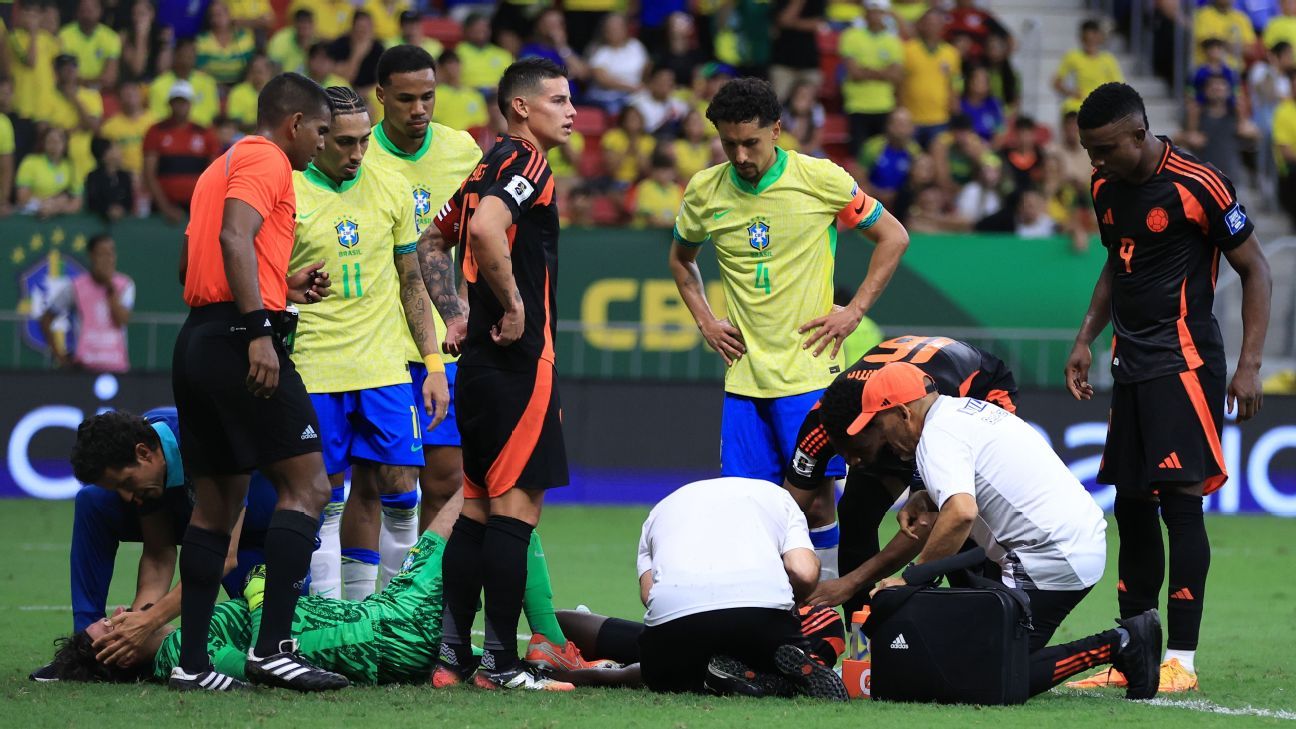
Liverpool goalkeeper Alisson Becker has withdrawn from the Brazil squad after sustaining a concussion during Thursday's World Cup qualifier with Colombia.
Alisson collided with Colombia defender Davinson Sánchez during Brazil's 2-1 win, with both players forced off the pitch in the 78th minute.
Liverpool have now confirmed that Alisson is set to fly back to Merseyside, where he will undergo further assessment from the club's medical staff.
He will miss Brazil's meeting with Argentina next Tuesday, with Liverpool set to return to Premier League action against Everton on April 2.
Speaking after Thursday's game, Brazil doctor Rodrigo Lasmar said: "The first step is to perform the necessary tests and assessments and monitor the player over the next few days, which is the protocol.
"Alisson is normal. I believe you saw the images of him on the bench and after the game. He is completely normal now, without any complaints.
"During the treatment on the field, he did not report any fainting or memory loss, he was conscious and oriented the whole time. We substituted him because he had minor complaints, he thought he was a little slower and there was some possibility of a concussion, so in cases of this suspicion, the recommendation is to substitute the player."
Sources: Northwestern, Collins talking new deal
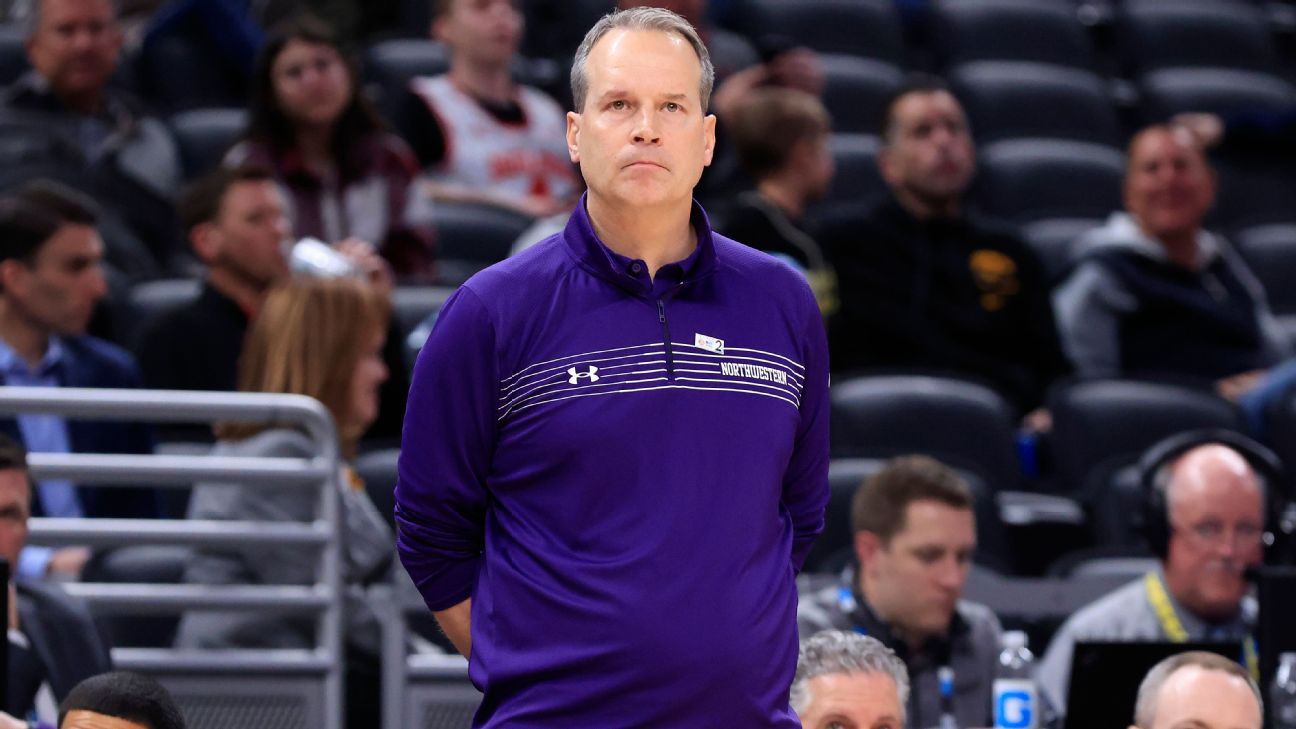
Northwestern is in deep discussions on a new contract for men's basketball coach Chris Collins that will give him additional years, a raise and provide more resources for the staff and program, sources told ESPN's Pete Thamel on Friday.
The new deal is expected to come together in the coming weeks, sources said.
Collins has been linked in recent weeks to the Villanova head coach vacancy, given his success at Northwestern and his ties to Philadelphia through his father, Doug, who played and later coached for the Philadelphia 76ers.
Collins has been the head coach at Northwestern since 2013, leading the Wildcats to their first-ever NCAA tournament appearance in 2017 and also guiding the program to the NCAA tournament in 2023 and 2024. He has won a first-round game in all three tournament appearances.
Northwestern got out to a 10-3 start this season but had an injury-riddled Big Ten campaign, ultimately finishing 17-16 overall and 7-13 in league play.
Collins is 194-90 in 12 seasons with the Wildcats.
Prior to taking over at Northwestern, he was an assistant coach at Duke -- where he played his college ball -- under Mike Krzyzewski for 13 years.
Sources: Free agent QB Rodgers visits Steelers
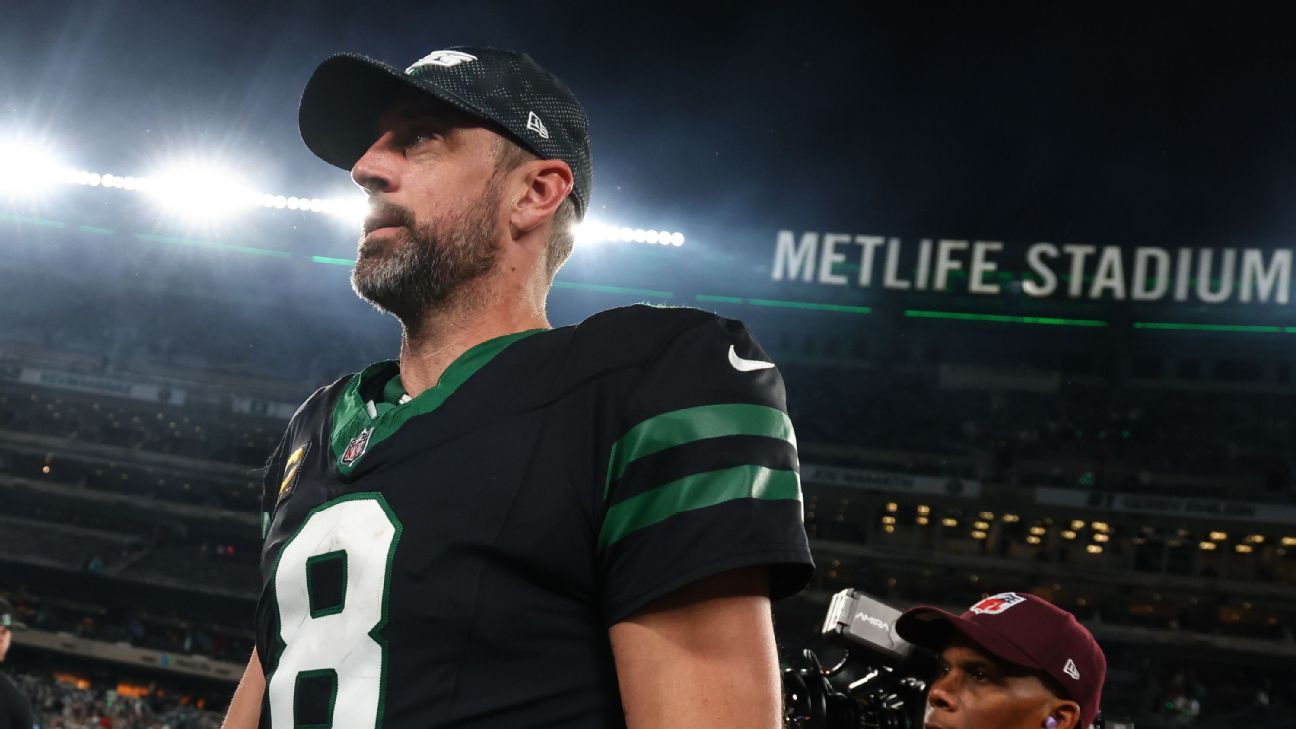
PITTSBURGH -- It's "bring a four-time NFL MVP to work day" in Pittsburgh.
Quarterback Aaron Rodgers, a free agent for the first time in his career, is visiting the Steelers' practice facility to meet with coaches Friday, sources confirmed to ESPN's Adam Schefter. No deal is imminent, sources told Schefter. The Pittsburgh Post-Gazette was the first to report Rodgers' visit.
Rodgers emerged as an option for the Steelers nearly two weeks ago during the league's negotiating period before the official start of free agency. While Rodgers has offers from the Steelers and New York Giants, the Minnesota Vikings were also believed to be in the mix.
Minnesota, though, is preparing to move forward with 2024 first-round pick J.J. McCarthy as its starting quarterback, significantly diminishing its chances of bringing Rodgers in.
Rodgers was released by the New York Jets on March 12.
Injured Mavs Lively, Gafford join AD in G League
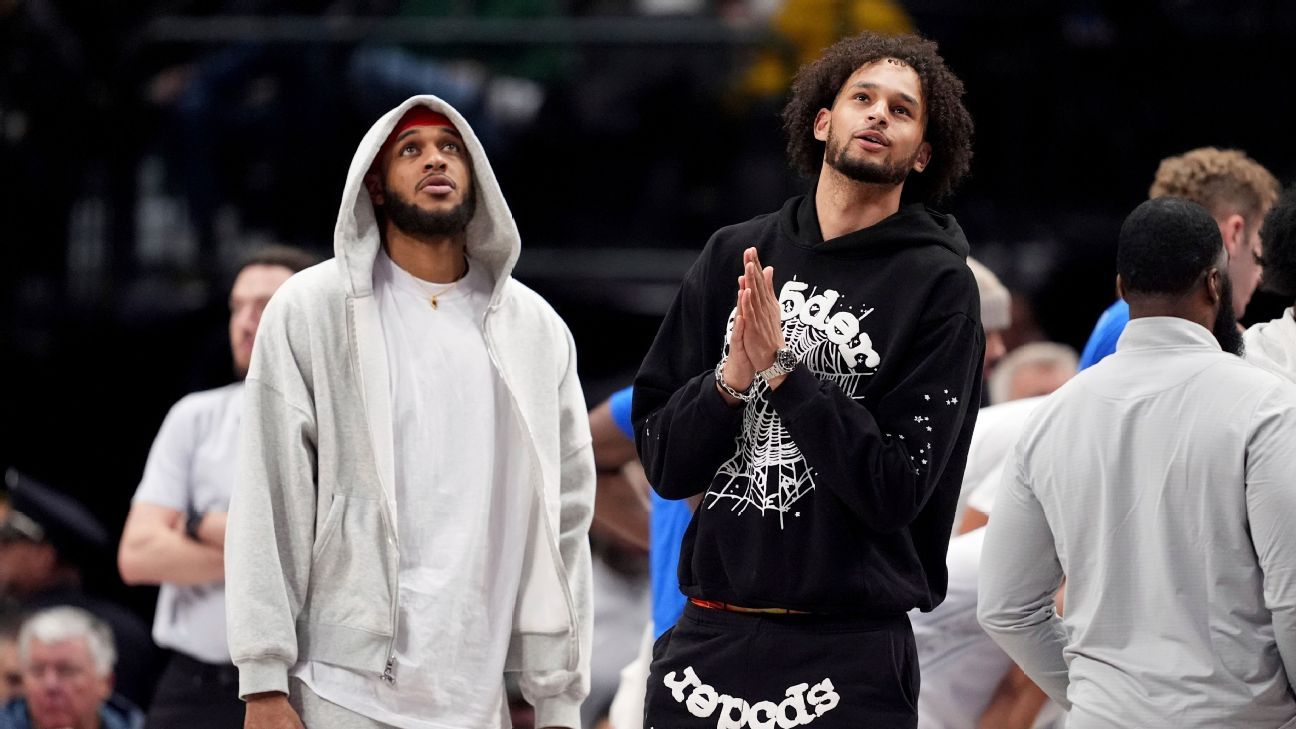
Dallas Mavericks centers Dereck Lively II and Daniel Gafford will join power forward Anthony Davis for a practice with the Texas Legends, the team's G League affiliate, as the trio prepares to return from extended injury absences.
It is the second time this week that Davis, who has been sidelined since Feb. 8 with a left adductor strain, will practice and scrimmage with the Legends. It is the first time that Lively and Gafford have been assigned to the G League team since they were injured.
Lively has been sidelined since Jan. 14 with a stress fracture in his right ankle. Gafford has been out since suffering a sprained MCL in his right knee Feb. 10.
The Mavericks have been ravaged by injuries, playing multiple games recently with the league-minimum eight available players. Forward/center Kessler Edwards, who has been starting, is eligible to play only one more game on his two-way contract.
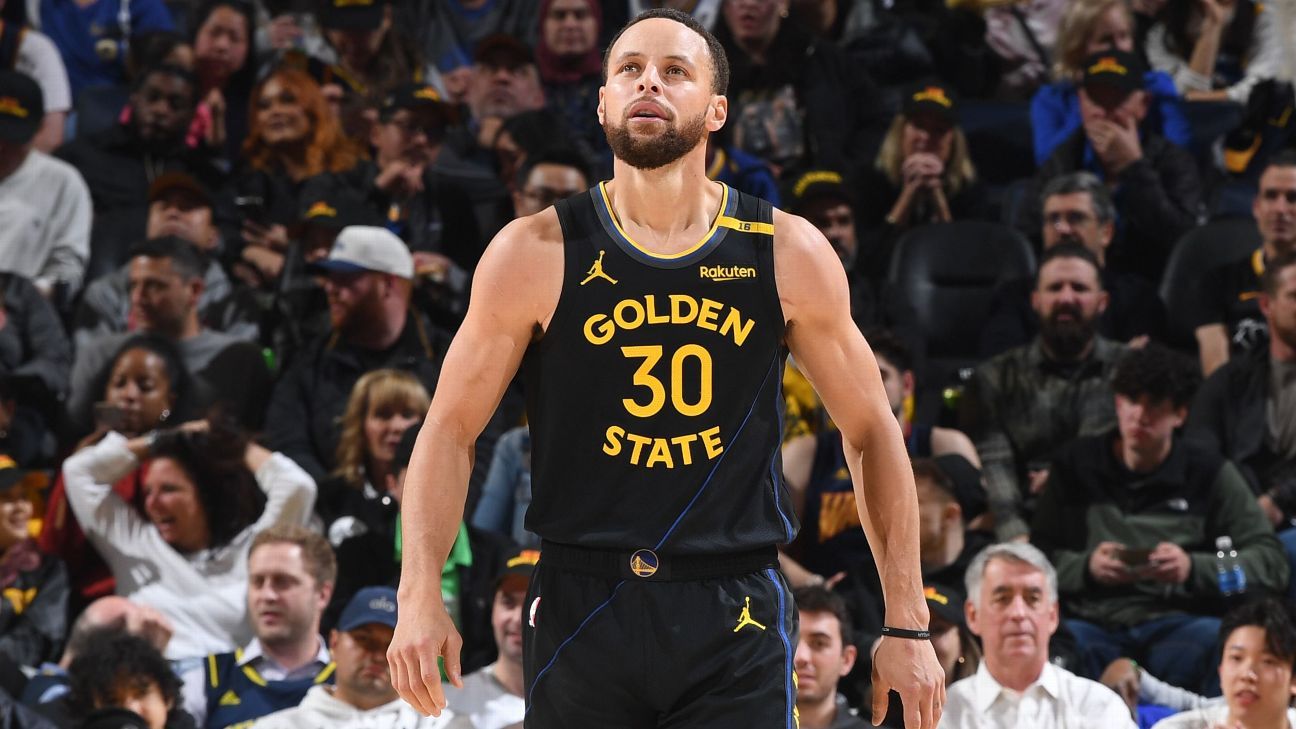
Golden State Warriors superstar Stephen Curry underwent an MRI that confirmed the point guard suffered a pelvic contusion and no structural damage, the team announced Friday.
Curry will miss the start of the Warriors' six-game road trip, which starts at Atlanta on Saturday as he receives treatment over the next few days. There is optimism that Curry will feel better with treatment in the coming days. He will be reevaluated on Monday.
Curry left the Warriors' 117-114 win over the Toronto Raptors on Thursday night with 3:24 left in the third quarter. Curry was driving in the paint and collided with a Raptor player before taking a hard spill. He writhed in pain on the floor before heading back to the locker room.
Warriors coach Steve Kerr said after the game that Curry was getting an MRI.
"He thought he might be able to come back" into the game, Kerr told reporters after the win. "We just decided not to risk anything. So hopefully it's not bad."
Draymond Green said it was a "scary moment" when Curry went down.
"He hit that ground hard," Green told reporters after the Warriors' win. "You could hear it. It was crazy. Obviously a very scary moment for us, for him. Hopefully he's good."
Curry finished with 17 points in 25 minutes.















 Phone: (800) 737. 6040
Phone: (800) 737. 6040 Fax: (800) 825 5558
Fax: (800) 825 5558 Website:
Website:  Email:
Email: 






